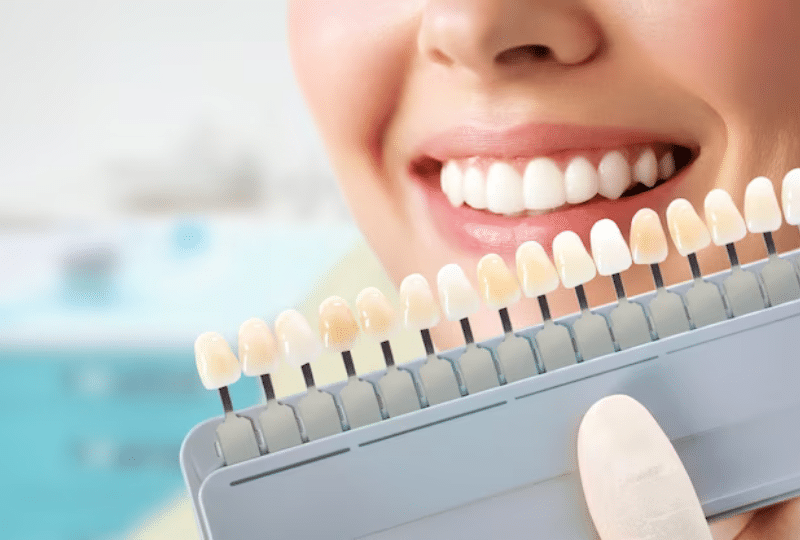
In the quest for a radiant smile, many individuals seek solutions that not only enhance aesthetics but also address underlying dental concerns. One such transformative option gaining popularity is veneers, known for their profound impact on bite alignment. In this comprehensive guide, we delve into the world of veneers, exploring their benefits, the process involved, and crucial considerations.
Understanding Veneers and Their Purpose
The Basics of Veneers
Veneers are thin, custom-made shells crafted from materials like porcelain or composite resin. These shells are designed to cover the front surface of teeth, providing an instant transformation by improving their shape, size, and color. While the primary goal of veneers is often cosmetic enhancement, their influence on bite alignment is a noteworthy aspect.
Aesthetic Appeal and Functional Harmony
Beyond their cosmetic benefits, veneers contribute to the overall functional harmony of the mouth. They can address issues like misalignment, gaps, and minor bite irregularities. This dual-purpose makes veneers an appealing option for those seeking both aesthetic improvement and enhanced bite alignment.
The Impact of Veneers on Bite Alignment
Correcting Minor Misalignments
Veneers can play a pivotal role in correcting minor misalignments in the bite. By reshaping the teeth’s surface, veneers help in achieving a more even and balanced bite. This not only enhances the appearance of the smile but also contributes to improved dental functionality.
Bite Stability and Balance
A well-aligned bite is essential for overall oral health. Veneers aid in achieving bite stability and balance by ensuring that the upper and lower teeth come together harmoniously. This, in turn, reduces the risk of issues such as uneven wear, jaw pain, and discomfort while chewing.
Customized Solutions for Individual Needs
One of the notable aspects of veneers is their customization. Each veneer is meticulously crafted to suit the individual’s unique dental structure. This personalized approach ensures that the veneers not only enhance the aesthetics but also contribute to optimal bite alignment based on the specific needs of the patient.
The Veneer Application Process
Comprehensive Assessment
Before embarking on the veneer application journey, a thorough dental assessment is conducted. This involves examining the current state of the teeth, assessing the bite, and understanding the patient’s goals. A cosmetic dentist takes into account various factors to create a tailored plan.
Tooth Preparation and Impression
The application process begins with the preparation of the teeth that will receive the veneers. A small amount of enamel is removed to accommodate the thickness of the veneers. Impressions are then taken to ensure the custom shells perfectly fit the reshaped teeth.
Custom Craftsmanship
The creation of veneers involves skilled craftsmanship. Dental technicians meticulously design each veneer to align with the patient’s unique dental anatomy. The choice of material, whether porcelain or composite resin, is made based on factors like durability, aesthetics, and the specific needs of the individual.
Precision Bonding
Once the veneers are ready, they are carefully bonded to the prepared teeth using a strong adhesive. The bonding process requires precision to ensure a secure and long-lasting fit. The result is a transformed smile that not only looks natural but also promotes optimal bite alignment.
Considerations and Care Tips
Longevity of Veneers
Veneers, when properly cared for, can have a long lifespan. However, it’s essential to consider that they may require replacement over time. Regular dental check-ups and maintenance are crucial to monitor the condition of the veneers and address any issues promptly.
Oral Hygiene Practices
Maintaining good oral hygiene is paramount, especially when veneers are involved. While veneers themselves are resistant to staining, the natural teeth around them are not. Practicing diligent oral hygiene, including regular brushing, flossing, and dental check-ups, ensures the longevity and vibrancy of the veneers.
Achieving Your Ideal Smile with a Cosmetic Dentist
For those considering veneers to enhance their smile and bite alignment, consulting with a skilled cosmetic dentist is key. A professional evaluation ensures that the treatment aligns with your specific needs, providing a personalized approach to achieving your ideal smile.
Veneers go beyond being a cosmetic solution, making a significant impact on bite alignment. The combination of aesthetic enhancement and functional improvement makes veneers a versatile option for individuals seeking a holistic approach to dental transformation. Consult with a Cosmetic Dentist in Los Angeles to embark on your journey toward a harmonious and radiant smile.


